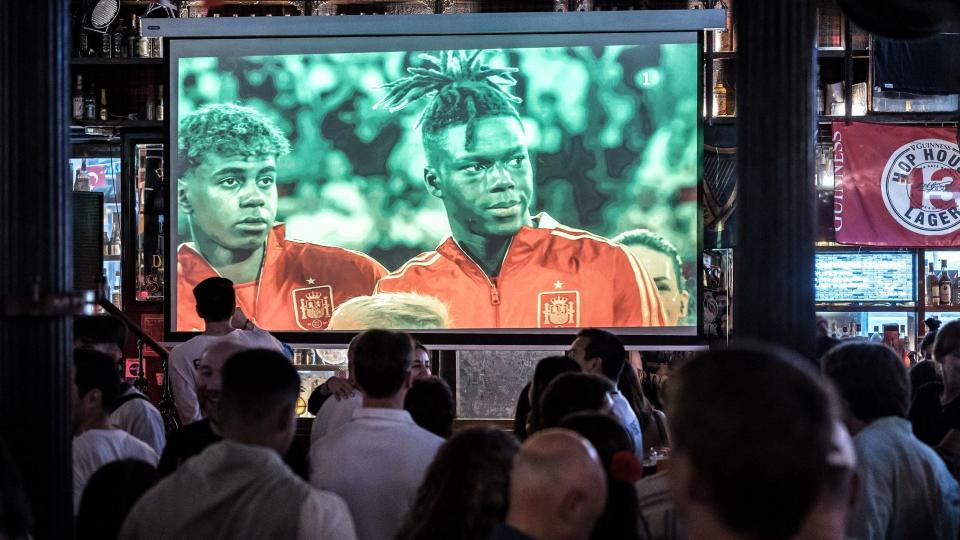Cheap TVs ahead of Euros help slow price inflation

Discounted TVs ahead of the Euros football tournament helped slow price rises in shops in June, new figures show.
Shop prices rose at an annual rate of 0.2% last month, down from 0.6% in the year to May, according to retail trade body the British Retail Consortium (BRC) and research firm NielsenIQ.
Cheaper butter and coffee also meant food price inflation continued to ease.
However, while price rises have slowed to the lowest rate since October 2021, many food items and other goods are still more expensive than they were before the pandemic and Russia's invasion of Ukraine, leaving household budgets squeezed.
Helen Dickinson, chief executive of the BRC, said retailers had offered deals on televisions in June to "capitalise on the Euros fever".
The price of non-food goods dropped by 1%, a steeper fall than May's 0.8% decline, she said.
Food inflation slowed to 2.5% in the year to June compared to 3.2% in May.
Researchers suggested that price rises will remain subdued amid tighter household spending.
"With uncertainty around discretionary spending, we expect the intense competition across the marketplace to keep price increases as low as possible this summer," said Mike Watson, head of retailer and business insight at NielsenIQ.
Official figures showed that the UK's headline inflation rate - which charts price rises across the economy - hit the Bank of England's 2% target for the first time in almost three years in May.
However, even though inflation is falling, it does not mean the prices of goods and services overall are coming down, just that they are rising at a slower pace.
The Bank of England has also put up interest rates to try to dampen down consumer demand, driving up mortgage rates and rents.
Experts are also warning of a bumpy road ahead.
The Middle East conflict continues to affect trading in the Red Sea, a popular shipping route, forcing firms to take longer and more expensive diversions.
As a result these higher logistics costs could be passed on to consumers.
"The last few years should serve as a warning that where business costs rise significantly, consumer prices are forced up too," Mr Watkins said, urging whoever wins Thursday's general election to address "some of the major cost burden weighing down the retail industry".

 Yahoo Finance
Yahoo Finance 